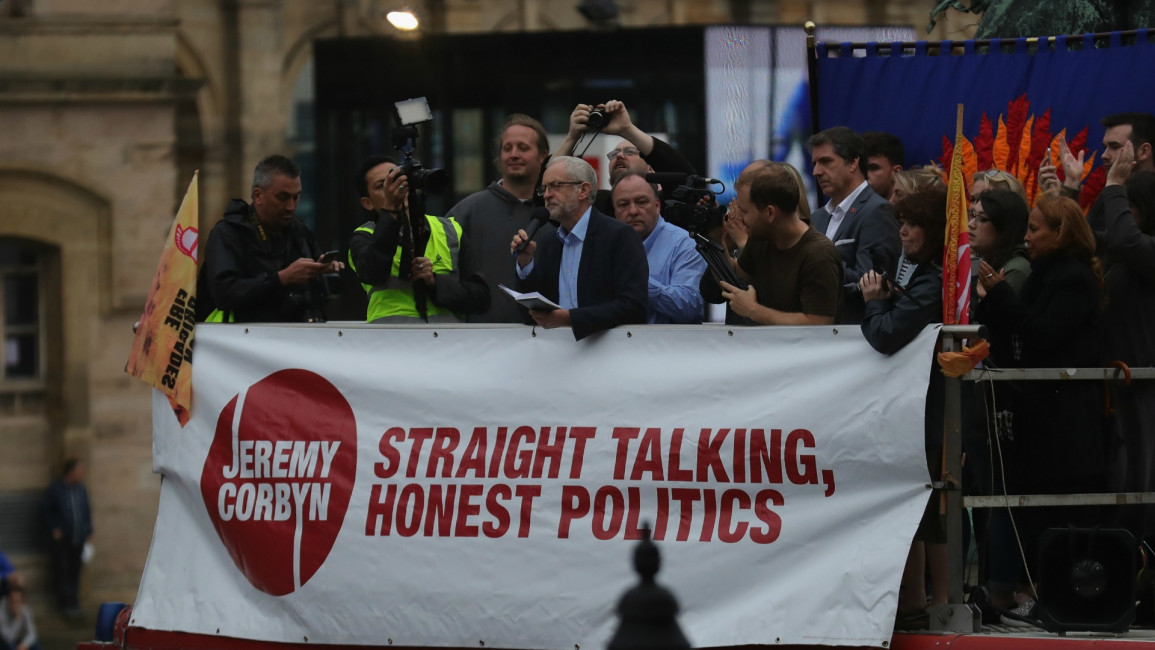
Foreign policy must be democratised
The gap between British Labour MPs and ordinary party members has thrown into the spotlight the flaws in party politics and representative democracy. Westminster politics have long failed to represent popular opinion. But the area in which the democratic deficit is most pronounced is foreign policy.
The UK's involvement in the 2003 invasion and occupation of Iraq is a case in point. The public opposed the war, protesting against it in massive numbers - but in vain.
Blair's contempt for democracy, epitomised by his labelling of the anti-war demonstrations as "fatuous", meant he didn't much care for the views of the people he was supposed to represent and serve. And the British democratic system did not provide, or at least did not produce, any more effective means to prevent Blair joining George W. Bush in the rush to war.
Perhaps, on one level, Blair knew that the day or two of media scrutiny he was subjected to in the aftermath of the Chilcot report's release would be the worst punishment he seemed likely to face. And that subsequent failure of accountability mechanisms goes hand in hand with the initial failure of the democratic process.
 |
Foreign policy must not be the domain of a small 'expert' elite clique sitting on the prime minister's couch |  |
One point is certain: the invasion of Iraq could not have happened if so much power to decide the government's activities overseas had not been concentrated in the hands of so few. A key lesson of Iraq was therefore that foreign policy must not be the domain of a small "expert" elite clique sitting on the prime minister's couch. Political leaders lie and misjudge intelligence. For all the talk of rebuilding public confidence in government, time and time again mistrust has proven to be the appropriate attitude.
 |
|
| Click to enlarge |
The only way to truly merit public faith would be to drastically deepen transparency and democracy. Though it sounds banal, this would likely bring about seismic shifts in other areas of foreign policy. In the case of Israel/Palestine for example, Zionist strategists have long recognised and relied on the fact that foreign policy is a game with few players.
For example, at the Herzliya Conference in 2010, it was noted that "foreign policy decision-making includes a closed circle of people, usually consistent of the very elite of each society".
Nonetheless, as popular support for Palestinians continues to grow in dynamism as well as size, Advocates of Israel's government are becoming concerned that democracy could actually start to influence policy. During the 2014 military incursions into Gaza, code-named Operation Protective Edge, pro-Israel groups expressed concern that MPs had received many more letters in support of the Palestinians than of Israel; as yet, however, this is yet to be reflected in UK policy.
It is not only policy outcomes, but the people involved in decision-making that are often lacking in democratic legitimacy. Lest we forget the scandal, former Defence Secretary (now Minister for Trade) Liam Fox was found in 2011 to have been accompanied on official government business on trips around the world - including visits to Israel, Sri Lanka and Dubai - by an unelected friend, Adam Werritty, who had been best man at his wedding.
Werrity's many visits to the Ministry of Defence and involvement in the now-dissolved Atlantic Bridge charity were later subject to an investigation by senior civil servants.
 |
Political elites won't give up their hold on power easily |  |
Given this level of opacity in foreign policy affairs, Labour leader Jeremy Corbyn's recent proposal of a "war powers act" should have been welcomed as a means to open up foreign policy decisions to public scrutiny and democratise critical debates which could lead to military action - before the troops are sent in.
 |
|
| Click to enlarge |
Instead, Defence Secretary Michael Fallon rejected the idea, saying such measures would "constrain" the British military. That, of course, is precisely why they are needed.
Though it too is meeting with resistance and smears, not least from within the party, if it continues, it will do a service not just to the UK but to people around the world affected by British foreign policy.
Hilary Aked is an analyst and researcher whose PhD studies focus on the influence of the Israel lobby in the United Kingdom. Follow her on Twitter: @Hilary_Aked
Opinions expressed in this article remain those of the author and do not necessarily represent those of The New Arab, its editorial board or staff.



